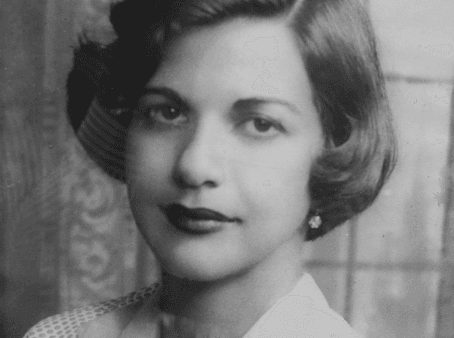Minerva Mirabal wasn’t just any woman; she was a force of nature. Born in the Dominican Republic on March 12, 1926, she grew up with a fire in her belly, a yearning for something more than the oppression her country faced under the iron fist of dictator Rafael Trujillo.
A Spirit Ignited: Education and Early Defiance
This wasn’t just about politics for Minerva; it was personal. At the young age of 22, at a dance where Trujillo was known to assess potential conquests, Minerva directly rejected his advances. Some historians suggest this act of defiance, witnessed by many, planted the seeds of Trujillo’s obsession with breaking her spirit. However, this event also ignited Minerva’s passion to fight for justice.
Attending El Colegio Inmaculada Concepción wasn’t just school for her; it was an awakening. She learned about the world, about justice, and saw how these ideals were being trampled upon in her own backyard. When her parents, initially wary of Trujillo’s regime, refused to allow her to study law, she channeled her frustrations into painting and poetry, creating art that subtly reflected the injustices she observed.
Eventually, Minerva’s parents relented, and she enrolled in law school at the University of Santo Domingo. In 1957, she achieved a historic milestone, becoming the first Dominican woman to graduate with a law degree. This wasn’t just a personal triumph; it was a direct challenge to Trujillo, a symbol of the rising tide of defiance against his regime.
Love, Resistance, and the Price of Courage
It was during her time at university that Minerva met Manuel Aurelio Tavárez Justo (Manolo), a fellow law student who shared her passion for justice. They fell in love and married in 1955, their union a testament to their shared commitment to fighting for a free Dominican Republic.
[https://www.lolaapp.com/grimm-fairy-tales-trimble] [https://www.lolaapp.com/dolores-huerta-quotes] [https://www.lolaapp.com/hanukkiah] [https://www.lolaapp.com/what-does-a-serpent-symbolize]
Together, Minerva and Manolo co-founded the 14th of June Movement, a clandestine resistance group named after a failed uprising against Trujillo. Operating in the shadows, they risked everything to distribute anti-Trujillo pamphlets, organize meetings, and recruit others to their cause.
Their activities did not go unnoticed. Minerva, her sisters Patria and María Teresa (who had joined the movement), and their husbands faced constant threats, arrests, and even torture at the hands of Trujillo’s ruthless secret police. Yet, despite the immense pressure and danger, their spirits remained unbroken.
A Brutal End, A Nation Awakened
On November 25, 1960, the unthinkable happened. After visiting their imprisoned husbands, Minerva, Patria, and María Teresa were stopped by Trujillo’s agents. They were brutally beaten and strangled to death, their bodies then placed in their jeep to make the murders look like an accident.
The news of the Mirabal sisters’ assassination sent shockwaves throughout the Dominican Republic. People who had been living in fear, silenced by Trujillo’s reign of terror, found their voices. The 14th of June Movement, fueled by the martyrs’ sacrifice, gained even greater momentum.
Less than six months later, on May 30, 1961, Trujillo was assassinated. While justice for the Mirabal sisters came too late, their deaths were a turning point in Dominican history. They had become symbols of the resistance, their sacrifice a catalyst for the eventual overthrow of a dictator.
The Butterflies: A Legacy of Hope and Resistance
Today, Minerva Mirabal is remembered as a national hero of the Dominican Republic. She and her sisters are known as “Las Mariposas” – The Butterflies – their story a reminder that even the smallest act of defiance can have a ripple effect, inspiring change and echoing through generations.
The United Nations, recognizing the profound impact of Minerva’s life and death, designated November 25th, the anniversary of her assassination, as the International Day for the Elimination of Violence Against Women. Her story continues to be shared around the world, inspiring activists, especially women, who fight against oppression and violence.
Minerva Mirabal’s legacy is a testament to the power of courage in the face of overwhelming odds. She reminds us that resistance can take many forms – from challenging a dictator in a crowded room to whispering for freedom in the shadows. Her life, though tragically cut short, serves as a beacon of hope, illuminating the path towards a more just and equitable world.
- Unlock Water’s Symbolism: A Cross-Cultural Exploration - April 20, 2025
- Identify Black and White Snakes: Venomous or Harmless? - April 20, 2025
- Unlocking Potential: Origins High School’s NYC Story - April 20, 2025
















4 thoughts on “Minerva Mirabal: The Dominican Butterfly Who Dared to Defy a Dictator”
Comments are closed.